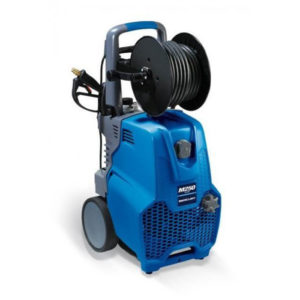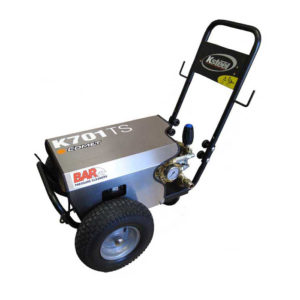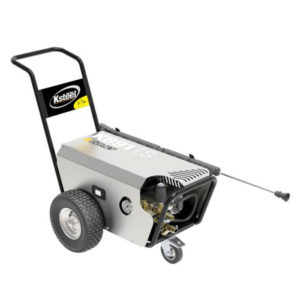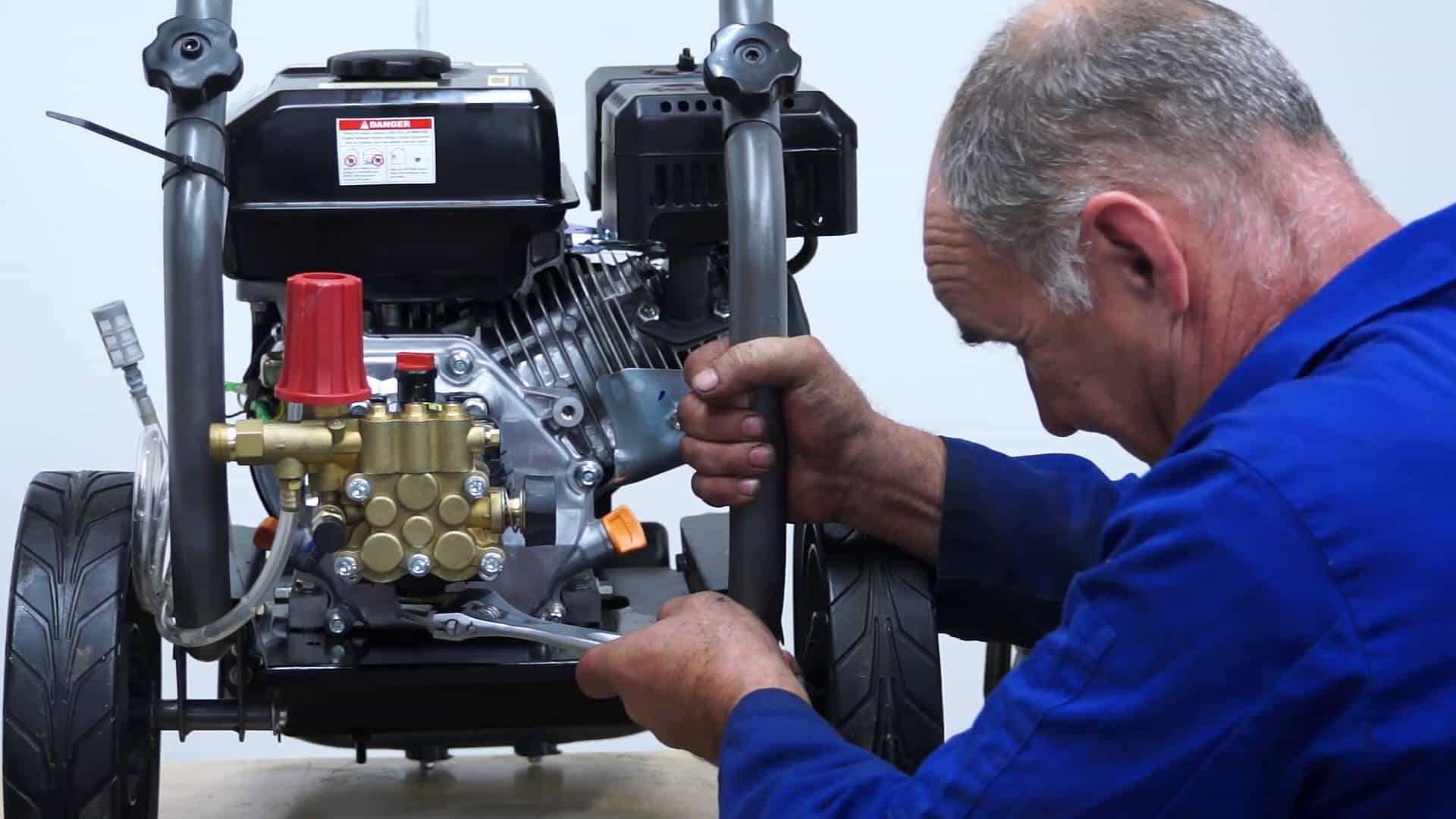Finding the right high pressure washer can be a difficult task. You’ve got to take into account the different engines, pumps, components and user experiences in mind.
You’ve also got to consider the different power pressures available, and determine which pressure is most appropriate for each surface.
Gas pressure washers can be effective, but they emit carbon monoxide so you can’t use them indoors. That’s why a professional electric power washer is an excellent alternative solution.
So if you’re looking for a high-quality commercial pressure washer, but aren’t quite sure what to buy, look no further. Below, we’ll outline the top electric pressure washers you can use in a commercial setting.
Commercial vs Residential High Pressure Washers
There is a significant difference between commercial and residential pressure washers. Generally, professional commercial washers are quicker and more effective cleaners than regular domestic washers.
You would use a commercial washer for industrial uses such as cleaning agricultural property, garages, warehouses, office buildings, removing graffiti, sandblasting and more.
Compared to domestic pressure waters, quality commercial high pressure cleaners will typically:
- Feature stronger pump heads
- Handle more intensive use
- Have a longer lifetime
- Feature ceramic pistons avoiding corrosion
Electric vs Petrol Pressure Washers
So if you’re interested in purchasing a pressure washer for a commercial use, the next step will involve choosing whether to buy an electric or a fuel-powered pressure washer.
Petrol high pressure washers rely on fuel as their power source, so there is no need to be near a power switch. However, they are complicated to use, heavier and require regular maintenance checks. If you understand how a fuel-powered washer works, this would be easy for you – but, if not, you’ll need to consult a professional. They also typically have a higher power pressure (approximately 5,000 PSI).
Electric high pressure washers rely on electricity, and are generally used for residential use. This is because it has a low water pressure (approximately 2,000 PSI) and are lightweight. They are not the most appropriate use for a commercial or industrial use. They are easier to maintain, and typically don’t need to buy any additional parts. Great for beginners.
But electric high pressure washers are not limited to residential use. Below, we’ll outline what the top electric pressure washers.
3 Recommended Commercial Electric Pressure Washers
BAR K250 10-150E

The BAR K250 pressure washer is a high-quality electric pressure washer ideal for a range of commercial uses. This is a light commercial pressure that performs at 2,000 PSI at 10 litres per minute, at 1,400 revolutions per minute.
Some if its notable features include:
- A strong injection-moulded plastic casing
- Easily storable and accessible lance and gun
- Supporting handles for hose and power cable
- Removable detergent tank
- Huge wheels (220 mm Ø)
- Built-in unloader valve
BAR K701

The BAR K701 pressure washer is a medium-duty electric powered washer, powering 1,595 PSI and 1,400 revolutions per minute at 12 liters per minute.
Notable benefits of the BAR K701 include:
- A robust stainless steel cover to keep your washer safe and together
- Convenient mounting option for hose, plus easy storage for gun, cable, lance and hose on the handle
- Massive pneumatic wheels ((ø320 mm)
- Great for heavy duty jobs, with a thermal protected 4-pole electric motor (1400 rpm) and pump-motor coupling system
BAR K891 TS

The BAR K891 TS is another heavy duty electric commercial pressure washer, powering at 1,400 revolutions per minute.
This heavy duty washer is also great for intensive use, featuring:
- A sturdy stainless steel cover
- A brass suction filter you can easily service when necessary
- Oversized and paint-protected 4-pole motor (1400 pm)
- Professional unloader valve
- High quality pump-motor coupling system
Looking to purchase an electric high pressure washer for commercial use?
If you’re wanting to purchase a high pressure washer to use for commercial or industrial purposes, there are plenty of electric washers to choose from.
We’ve outlined the 3 top pressure washers above, fleshing out the incredible benefits you can take advantage of.
Get in touch with our expert team to learn everything there is to know about commercial pressure washers and which one is best for your business.


